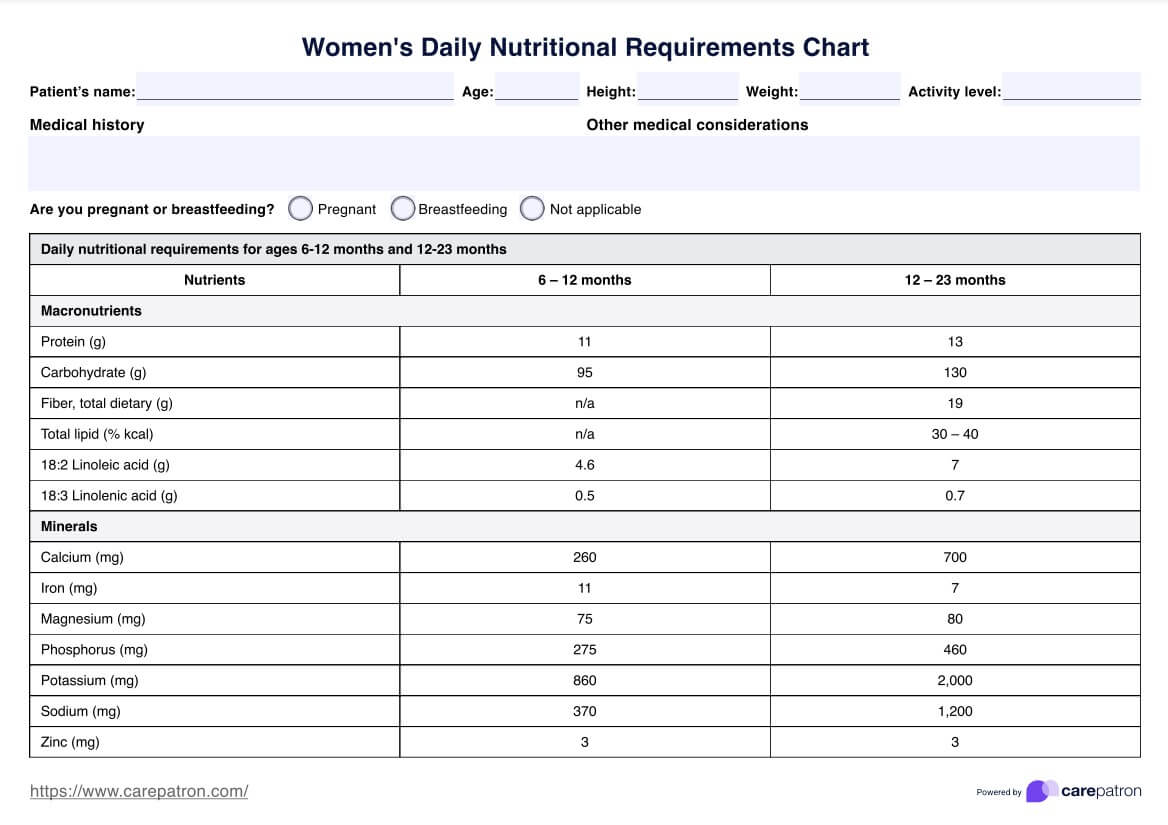The daily nutritional intake for a woman varies based on factors like age, activity level, and health goals. A balanced diet should generally include a mix of lean proteins, whole grains, fruits, vegetables, and healthy fats to meet essential nutrient needs.

Women's Daily Nutritional Requirements Chart
Download Carepatron's free PDF chart outlining women's daily nutritional requirements, including examples of a balanced diet to help you meet your dietary needs effectively.
Women's Daily Nutritional Requirements Chart Template
Commonly asked questions
The amount of food a woman should eat daily depends on age, metabolism, and physical activity. Focusing on portion control, listening to hunger cues, and consuming nutrient-dense foods are essential to overall health.
The Recommended Dietary Allowance (RDA) for a 50-year-old woman varies. Still, standard guidelines include about 46 grams of protein, 1,200 to 1,600 calories, and adequate intake of vitamins and minerals to support aging-related nutritional needs.
EHR and practice management software
Get started for free
*No credit card required
Free
$0/usd
Unlimited clients
Telehealth
1GB of storage
Client portal text
Automated billing and online payments











